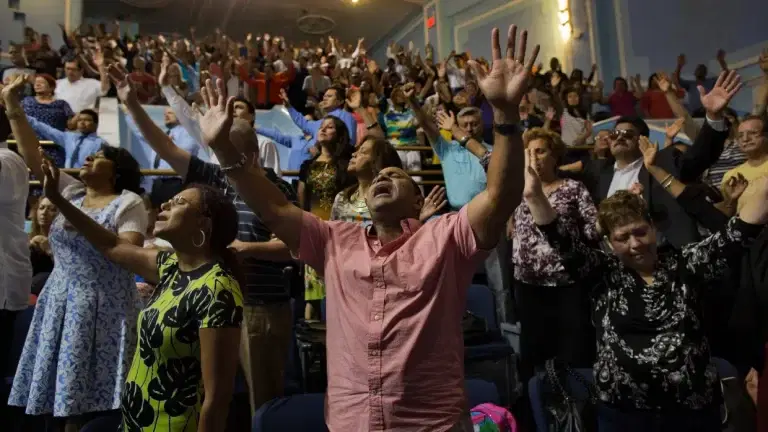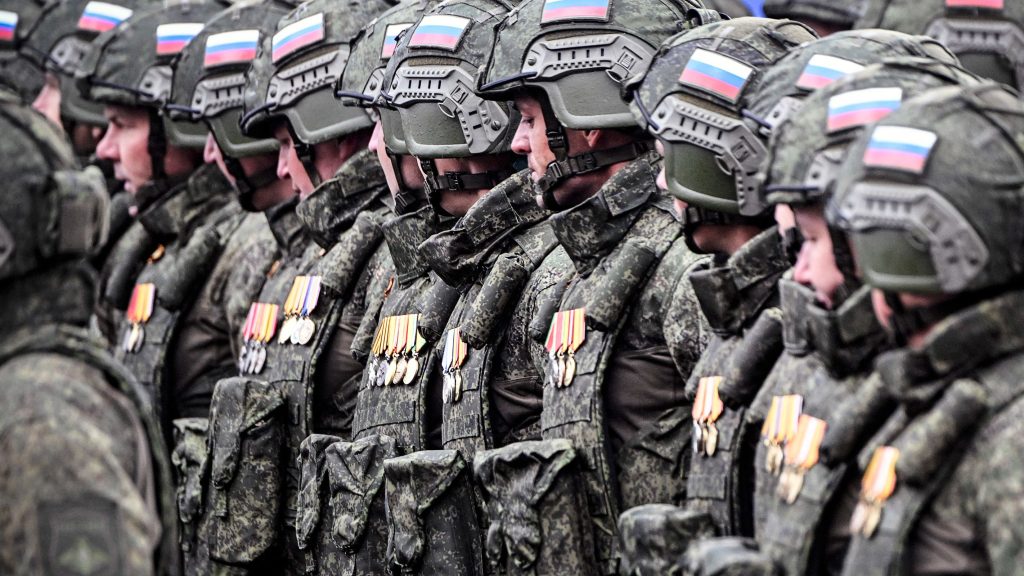Headline
Top 10 Countries With Highest Number Of Churches 2024

As Christianity continues to be one of the world’s most practiced religions, certain countries stand out for their sheer number of churches
When it comes to the expression of faith and spirituality, few things are as significant as places of worship. Churches, in particular, have played a central role in the spiritual lives of millions worldwide.
These sacred spaces not only serve as venues for worship but also act as pillars of community life, education, and social support. As Christianity continues to be one of the world’s most practiced religions, certain countries stand out for their sheer number of churches.
This article explores the top 10 countries with the highest number of churches, per ratings from Bscholarly, delving into the historical, cultural, and social factors that have led to their proliferation.
1. Vatican City
While Vatican City is the smallest country in Europe by population, it holds a unique distinction: it boasts the highest concentration of churches. With around 1,700 churches, Vatican City has more churches per capita than any other country. This small, yet powerful state, located within Rome, Italy, is home to about 1,000 residents and hosts St. Peter’s Basilica, one of the holiest sites for Catholics worldwide.
READ ALSO: PHOTOS: 10 Wonders Of The World And Countries To Find Them
2. Rwanda
Rwanda, with a Christian population of 93.6%, is predominantly Roman Catholic. Despite being one of Africa’s smallest and most densely populated countries, it has an estimated population of 11 million people, with around 1 million identifying as Christians. The country’s rich history and significant Christian presence have earned it the nickname “the Jerusalem of Africa” by some Westerners, particularly after the 1967 conflict between Christians and Muslims.
3. Malawi
Malawi stands out with the highest number of churches per capita, with one church for every 132 people. The country has approximately 10,000 churches spread across its territory, reflecting its deep-rooted Christian heritage. Many of these churches date back to colonial times when missionaries established numerous Catholic churches and chapels independently of government support. Before gaining independence from Britain in 1964, Malawi was known as Nyasaland, meaning “the land of lakes.”
4. Angola
Christianity is the dominant religion in Angola, with 95% of the population identifying as Christians. The majority are Roman Catholics, while the rest belong to various Protestant denominations like Methodists, Congregationalists, and Baptists. Christian missionaries played a crucial role in spreading Christianity across Angola, also contributing to the country’s social development through initiatives like free medical care and education.
READ ALSO: 10 Most Corrupt Countries In Africa In 2024
5. Romania
Romania, located in Southeastern Europe with Bucharest as its capital, is home to approximately 1,800 churches. The country’s cultural and ethnic identity is deeply influenced by Roman history, shaped by its strategic location along major migration routes in Europe. The Orthodox Church, one of the three major Christian denominations, is predominant in Romania, where about 200 million people adhere to Orthodox Christianity.
6. Italy
Italy, with a population of 60.6 million, is the fourth-largest economy in Europe and a founding member of the European Union. It has a rich cultural heritage, reflected in its art and architecture, with masterpieces like Michelangelo’s David, Leonardo da Vinci’s Mona Lisa, and Brunelleschi’s Duomo in Florence. Italy is also home to a significant number of churches, a testament to its deep-rooted Christian traditions.
7. Poland
Poland, situated in Central Europe with a population of 38.5 million, is home to over 10,000 churches. The country’s history is steeped in Catholic tradition, which plays a central role in Polish culture and identity. Polish cuisine, influenced by Russian, Ukrainian, Lithuanian, and German culinary traditions, reflects the country’s rich heritage, with dishes passed down through generations.
READ ALSO: Top 10 Most Dangerous Countries In The World 2024
8. Spain
Spain is a country with a deep European heritage, influenced by significant historical events such as the discovery of the Americas and its neutral stance during the world wars. The Catholic Church has long played a pivotal role in Spanish history, influencing both political and social landscapes. The Church in Spain grew as new members shared their faith with their communities, further solidifying its influence.
9. Portugal
Portugal, one of Europe’s most religious countries, has a long-standing Christian heritage, with 90% of its population identifying as Catholic. Despite its relatively small size, Portugal maintains strong ties with religious institutions, offering benefits such as tax rebates for clergy. The Catholic faith continues to be a significant aspect of Portuguese society.
10. São Tomé and Príncipe
The small island nation of São Tomé and Príncipe, located in the Gulf of Guinea off the coast of Central Africa, was settled in the 15th century by Portuguese explorers. The islands became a crucial hub for the African slave trade, and today, Roman Catholicism is the dominant religion, with 55.7% of the population identifying as Catholic, a legacy of Portuguese colonialism.
SOURCE: VANGUARD
Headline
Insecurity: US Congressman Riley Moore Reveals Trump’s Mission In Nigeria

US Congressman Riley Moore has dismissed insinuations that President Donald Trump is attempting to bring war to Nigeria.
Moore made the remark in a post on his verified X handle on Monday.
His comments followed a US military airstrike on a terrorist enclave in north-west Nigeria on Christmas Day, reportedly carried out on the directive of President Trump.
“President Trump is not trying to bring war to Nigeria, he’s bringing peace and security to Nigeria and to the thousands of Christians who face horrific violence and death.
READ ALSO:Russia Calls up 135,000 Military Personnel
“The strikes against ISIS on Christmas, in coordination with the Nigerian government, have given hope to the Christians in Nigeria,” he said.
Recall that the lawmaker had previously stated that President Trump is focused on ending the killing of Christians in Nigeria.
It will be recalled that Moore led a US delegation on a fact-finding mission into alleged Christian genocide in Nigeria some weeks ago.
During his brief stay in the country, Moore travelled to Benue State, where he interfaced with religious and traditional leaders, as well as internally displaced persons.
Headline
Russia Calls up 135,000 Military Personnel

Russia has enlisted 135,000 conscripts for military service in 2026, following the conclusion of the autumn army draft by the Defense Ministry.
A statement on Monday said most personnel have been assigned to training units and military formations where they will “get a military specialty and learn to operate modern military hardware.”
The conscripts can choose to serve in any of the various military branches and armed services after an assessment of their health condition and the results of psychological examinations.
READ ALSO:Russian Strike On Odesa Region Kills Eight, Injures 27
The ministry disclosed that 680 recruits have joined scientific and research-production units, while 240 from the country’s national teams in Olympic disciplines joined sports companies.
However, military personnel who have served the established term of military service have been discharged and sent to their places of residence.
The latest enlistment confirms Russia is shoring up its troops deployed to the ongoing special military operation in Ukraine ahead of the new year.
READ ALSO:Putin Says Russia Ready For War, Blames Europe For Sabotaging Peace
A fortnight ago, European leaders reaffirmed their pledge to form a multinational force–under the aegis of the Coalition of the Willing–to assist Ukraine in securing land, skies, and seas.
The pledge is one of the six commitments the EU and heads of state developed for Ukraine’s security and economic recovery support measures.
In an interview with TASS on Sunday, Russian Foreign Minister Sergey Lavrov condemned Europe’s insistence on sending military forces to Ukraine.
“We have said many times that our Armed Forces would view them as a legitimate target,” he said, warning that anyone who attacks Russia would face “a devastating blow.”
Headline
How Our Airstrikes Stopped Christmas Attacks In Nigeria — US Lawmaker

Riley Moore, a member of the United States House of Representatives from West Virginia’s 2nd District, has linked the absence of Christmas attacks in Nigeria this year to US military airstrikes carried out against Islamist militants on Christmas Day.
In a post on his official X account on Saturday, Moore contrasted the situation with the past two Christmas seasons, during which he claimed Christians were killed in attacks across parts of Nigeria.
The lawmaker noted that this year’s response targeted extremist groups instead of marking another period of violence.
READ ALSO:Rep Moore Confirms 12 Tomahawk Missiles Launched In Sokoto
He added that US forces acted decisively against militants in coordination with the Nigerian government.
“For the past two Christmases, Christians have been murdered in Nigeria. This year, thanks to @POTUS, Radical Islamic Terrorists were on the receiving end of 12 Tomahawk missiles as a present.
“The successful strikes on ISIS, in coordination with the Nigerian government, are just the first step to secure the country and end the slaughter of our brothers and sisters in Christ,” Moore wrote.
US President Donald Trump said on Thursday that American forces had conducted deadly strikes against Islamic State terrorists in north-western Nigeria.
Trump, who spoke via his Truth Social platform, warned that more attacks would follow if the militants continued killing Christians, adding that the Department of War executed numerous “perfect strikes.”

 Headline4 days ago
Headline4 days agoJUST IN: US Forces Bomb Terrorists Camps In Nigeria

 News5 days ago
News5 days agoOkpebholo Slams ₦25bn Libel Suit On Edo PDP Chairman

 Headline4 days ago
Headline4 days agoUS Dept Of War Shares Video Of Air Strikes In Nigeria

 News4 days ago
News4 days agoPHOTOS: SGF George Akume Weds Ooni’s Ex-Queen

 News1 day ago
News1 day agoBREAKING: Anthony Joshua Involved In Road Accident

 News4 days ago
News4 days agoTrump’s Airstrikes: Halt Military Cooperation With US Immediately – Sheikh Gumi Tells Tinubu Govt

 News4 days ago
News4 days agoShehu Sani Reacts To Trump’s Military Strikes In Nigeria

 Headline4 days ago
Headline4 days agoU.S. Lawmaker Reacts To Nigeria, U.S. Airstrikes

 News2 days ago
News2 days agoEx-Edo Gov Obaseki Reacts As His Cousin Is Beaten, Stripped

 News5 days ago
News5 days agoYULETIDE: UBTH CMD Charges Nigerians To Be Hopeful In Coming Year
































